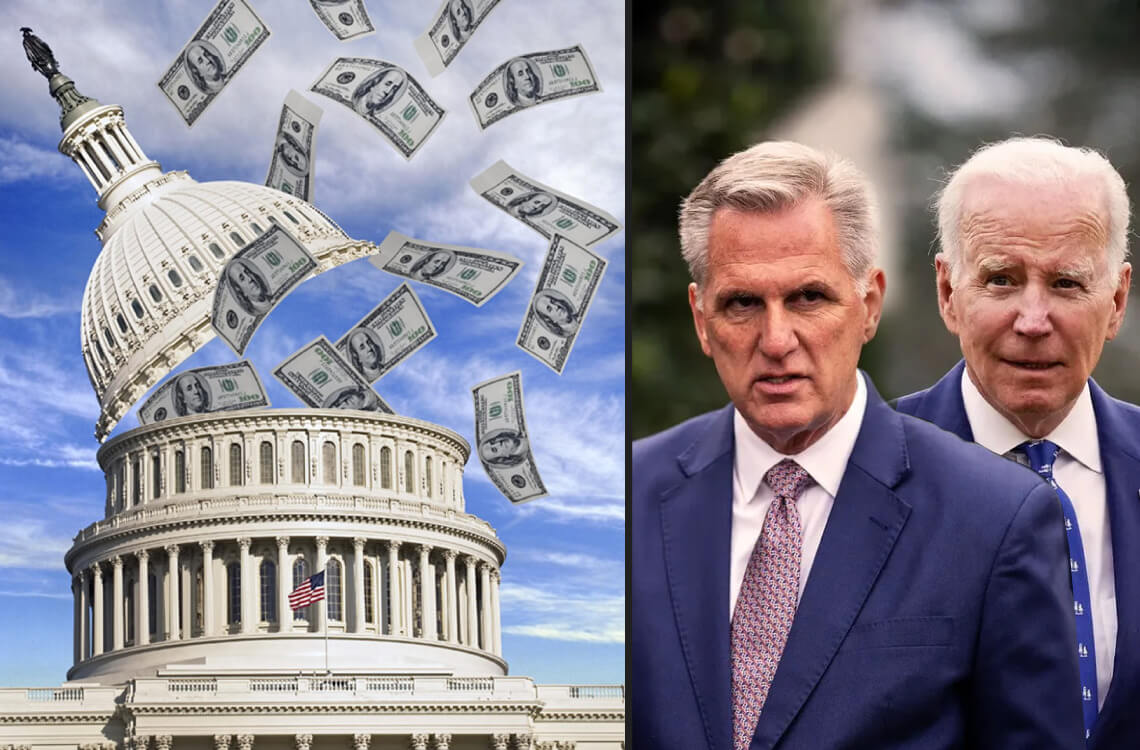President Joe Biden is set to engage in crucial negotiations this week with top Republicans and Democrats in an attempt to resolve the ongoing deadlock over the $31.4 trillion U.S. debt ceiling and avert a potentially disastrous default by the end of May.
The talks aim to bridge the divide between Biden’s call for a condition-free increase in the federal government’s self-imposed borrowing limit and Republican House Speaker Kevin McCarthy’s insistence on cutting spending to tackle the burgeoning budget deficit.
The stakes and possible compromises
Analysts do not anticipate an immediate resolution to avoid a historic default, which could occur as early as June 1 according to the Treasury Department.
Such an event would likely plunge the U.S. economy into a severe recession accompanied by surging unemployment rates.
However, the initiation of active discussions might alleviate investors’ concerns, which recently led to the federal government paying its highest interest ever for a one-month debt issue.
External observers, including individuals involved in previous fiscal negotiations and business lobby groups, have suggested potential compromises.
These primarily revolve around extending the debt ceiling beyond the November 2024 presidential elections while implementing a spending freeze.
Biden on the debt ceiling and budget
Biden has maintained that raising the debt ceiling, a necessary step to cover the expenses of spending and tax cuts already approved by Congress, should not be connected to budget discussions.
On the other hand, McCarthy has urged Democrats to either propose their own plan or accept a House-approved package that entails significant spending cuts over the next decade, along with new work requirements for benefit program recipients, in exchange for a debt ceiling increase of $1.5 trillion or until the end of March.
In March, Biden presented a budget proposal that aimed to reduce deficits by $3 trillion over 10 years by increasing taxes on corporations and individuals earning more than $400,000 annually.
The deadline for lawmakers remains uncertain, with the Treasury cautioning that it may be unable to cover all its bills as early as June 1, but potentially able to continue for several more weeks.
The Bipartisan Policy Center, a budget-focused think tank, is scheduled to release its revised forecast on Tuesday, which could further complicate the negotiations if it differs from the Treasury’s estimate.
The last time the U.S. faced a default risk of this magnitude was in 2011, with a similarly divided government.
Although Congress ultimately prevented a default, the economy experienced significant shocks, including the first-ever downgrade of the United States’ top-tier credit rating and a major stock market crash.
A default would have an even more immediate impact on average Americans, adversely affecting retirement savings and increasing interest rates on car and house loans, with low- and middle-income individuals bearing the brunt of the consequences.
The challenge of reaching an agreement is further exacerbated by McCarthy’s approval of a change in House rules, which enables a single member to call for his removal as speaker, thereby granting more power to hardliners such as the members of the House Freedom Caucus.





